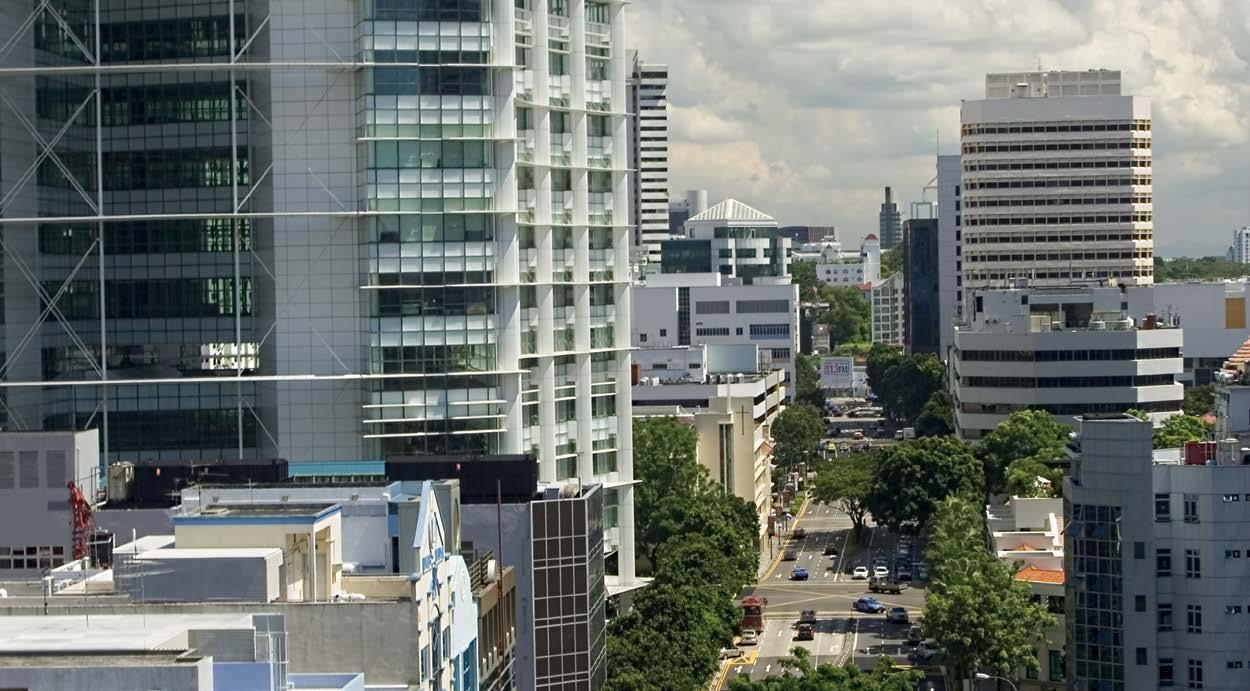
4 minute read
buildings rated for energy efficiency
SANEDI reminds building owners
to have their buildings rated for energy efficiency
Building owners have two years to comply with new building energy performance regulations, which require a formal assessment of their building energy consumption.
The Admin B building at Stellenbosch University, which houses the vice chancellor and executive team, received the first-ever EPC for a building in South Africa in February this year.
On 8 December 2020, the Department of Mineral Resources and Energy (DMRE) gazetted ‘Regulations for the Mandatory Display and Submission of Energy Performance Certificates for Buildings’. As an agency of the Department, the South African National Energy Development Institute (SANEDI) has been tasked with developing, hosting and maintaining a national Building Energy Performance Certificate Register in terms of these regulations.
“SANEDI wants to help ensure compliance with the new regulations, so that building owners are not unnecessarily penalised,” explains SANEDI’s Barry Bredenkamp, General Manager Energy Efficiency & Corporate Communications. “Ultimately, it must be highlighted that the responsibility lies with building owners to ensure that they are compliant with the regulations.”
What do the new regulations mean?
Certain classes of buildings need to have their energy performance assessed by a South African National Accreditation System (SANAS) accredited inspection body, who will then issue an Energy Performance Certificate (EPC), rating the building from A–G for energy efficiency.
“To be compliant, the EPC must be displayed at the building entrance, and a D-rating would typically indicate basic compliance with the energy efficiency component of the national building regulations. This first assessment will form the benchmark for the building and give the owner an idea of what needs to be done to improve the rating in the future. Everyone should aim for an A-rating in the longer term,” says Bredenkamp. EPCs need to be renewed every five years, giving building owners the opportunity to improve their energy performance.
Which buildings need to comply, by when?
The current regulations apply to four different classes of buildings defined in the national Building Standard: 1. entertainment and public assembly facilities; 2. theatrical and indoor sports facilities; 3. places of instruction and offices with a net floor area of at least 2 000m2 in the private sector; and 4. 1 000m2 for buildings owned, operated or occupied by an organ of the state.
These building must be compliant by 8 December 2022.
“The national drive towards energy efficiency will unlock the wider value chain, as building owners look to implement more efficient systems. Economic activity will be stimulated, as building owners work towards achieving compliance in areas such as HVAC, lighting, building retrofit, energy monitoring and more energy-efficient appliances and equipment, to optimize and reduce energy usage. "This will involve engineering firms and other Energy Service Companies (ESCos), who will typically be contracted to do these energy efficiency upgrades, thereby creating much-needed job opportunities in the energy sector,” Bredenkamp concludes.
SANEDI
T +27 (0)11 038 4302 W www.sanedi.org.za


HAS YOUR BUILDING RECEIVED AN ENERGY EFFICIENCY RATING? HAS YOUR BUILDING RECEIVED AN ENERGY EFFICIENCY RATING?

www.sanedi.org.za www.sanedi.org.za @sanedi.org @sanedi.org @sanedi_org @sanedi_org
It’s now mandatory for various classes of buildings over a certain size, to assess and display their energy performance. It’s now mandatory for various classes of buildings over a certain size, to assess and display their energy performance. The Department of Mineral Resources and Energy (DMRE), recently passed into law a set of Regulations for the Mandatory The Department of Mineral Resources and Energy (DMRE), Display and Submission of Energy Performance Certificates recently passed into law a set of Regulations for the Mandatory (EPC) for Buildings. Display and Submission of Energy Performance Certificates (EPC) for Buildings. The South African National Energy Development Institute (SANEDI), an agency of the DMRE, is tasked with hosting and The South African National Energy Development Institute maintaining a national Building Energy Performance Register (SANEDI), an agency of the DMRE, is tasked with hosting and to keep track of progress towards the achievement of the maintaining a national Building Energy Performance Register national objectives set out in the EPC Regulations. to keep track of progress towards the achievement of the national objectives set out in the EPC Regulations. Entertainment and public assembly facilities, theatrical and indoor sports facilities, places of instruction and offices with Entertainment and public assembly facilities, theatrical and a net floor area of at least 2000 m2 in the private sector, and indoor sports facilities, places of instruction and offices with 1000 m2 for buildings owned, operated or occupied by an a net floor area of at least 2000 m2 in the private sector, and organ of the state must be compliant with the EPC Regulations 1000 m2 for buildings owned, operated or occupied by an by 8 December 2022. organ of the state must be compliant with the EPC Regulations by 8 December 2022. For more information visit www.sanedi.org.za For more information visit www.sanedi.org.za











